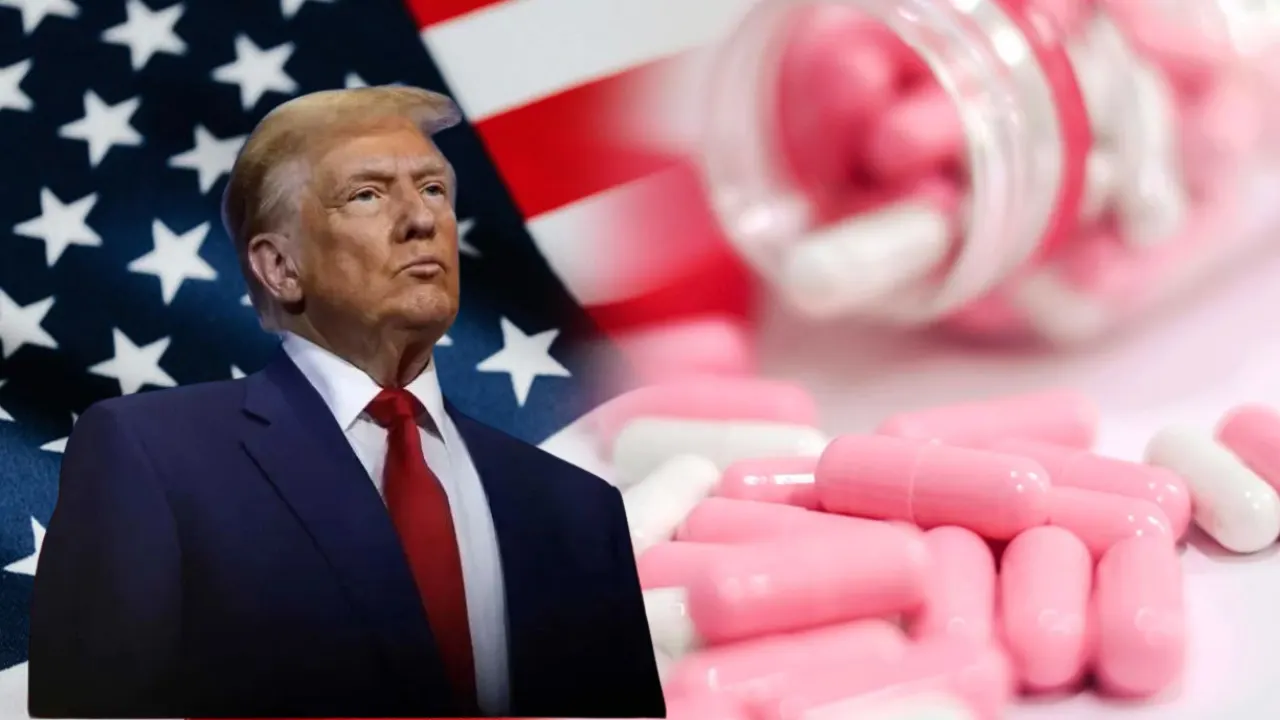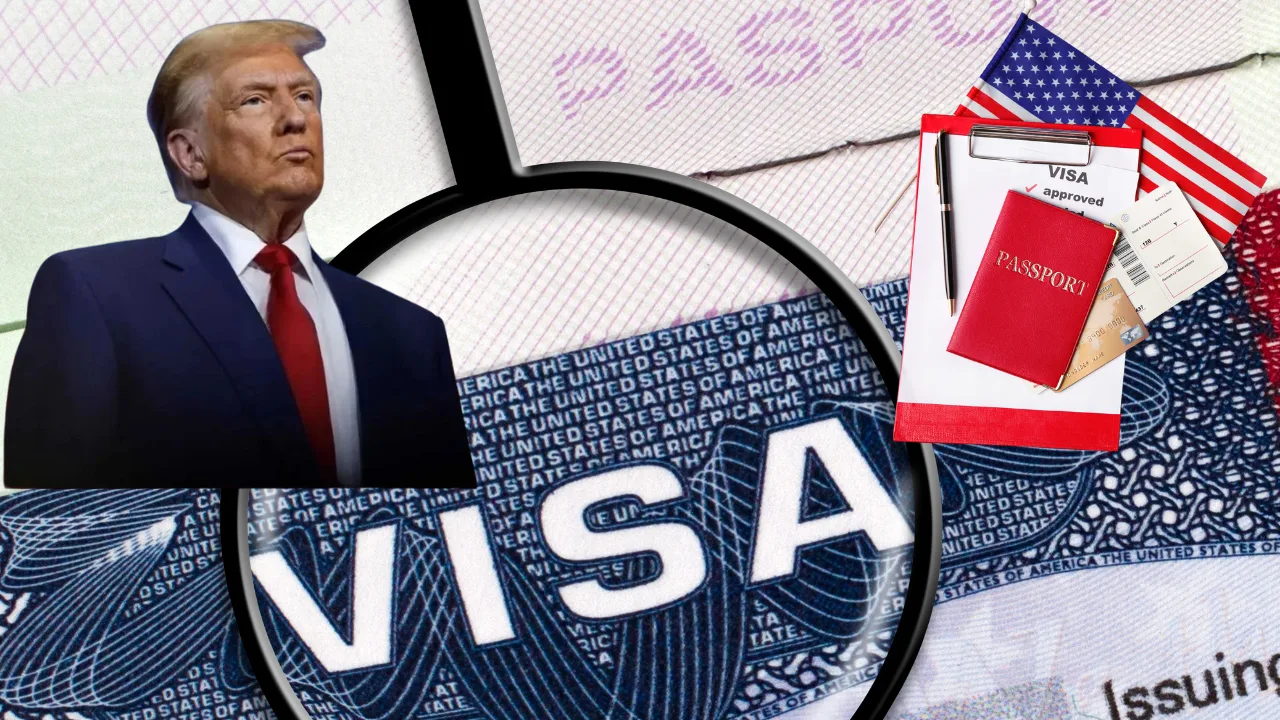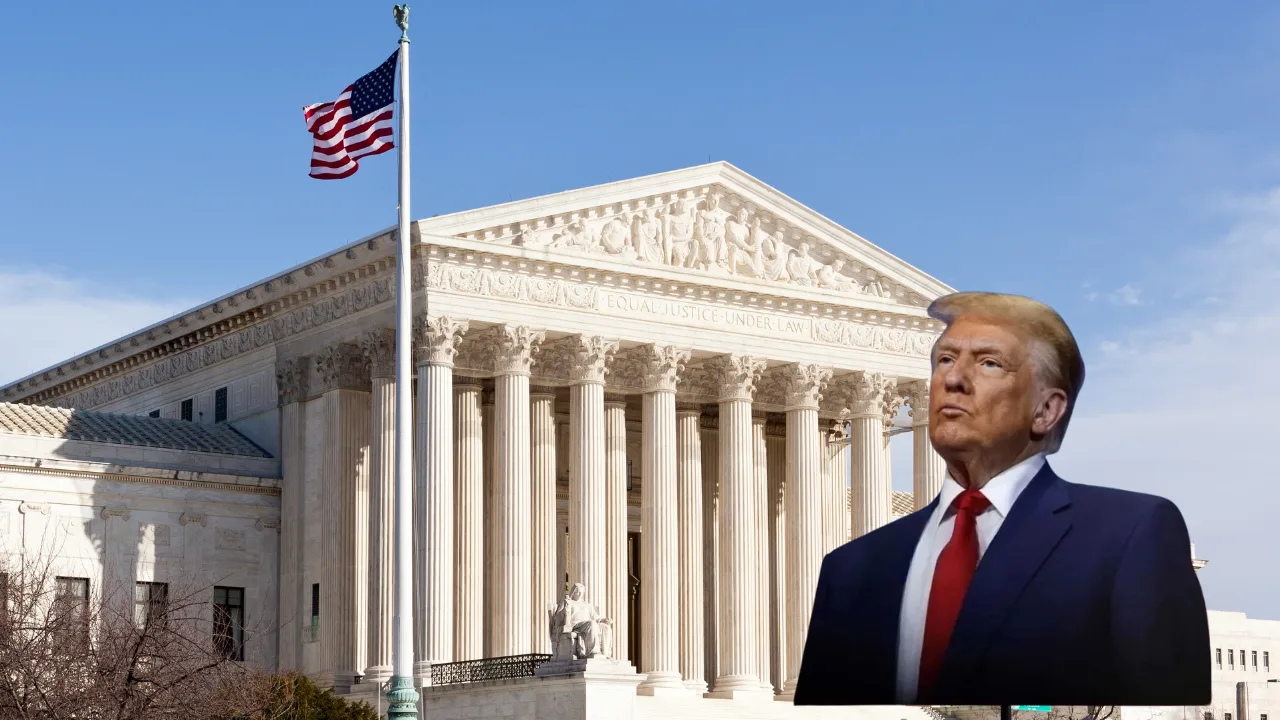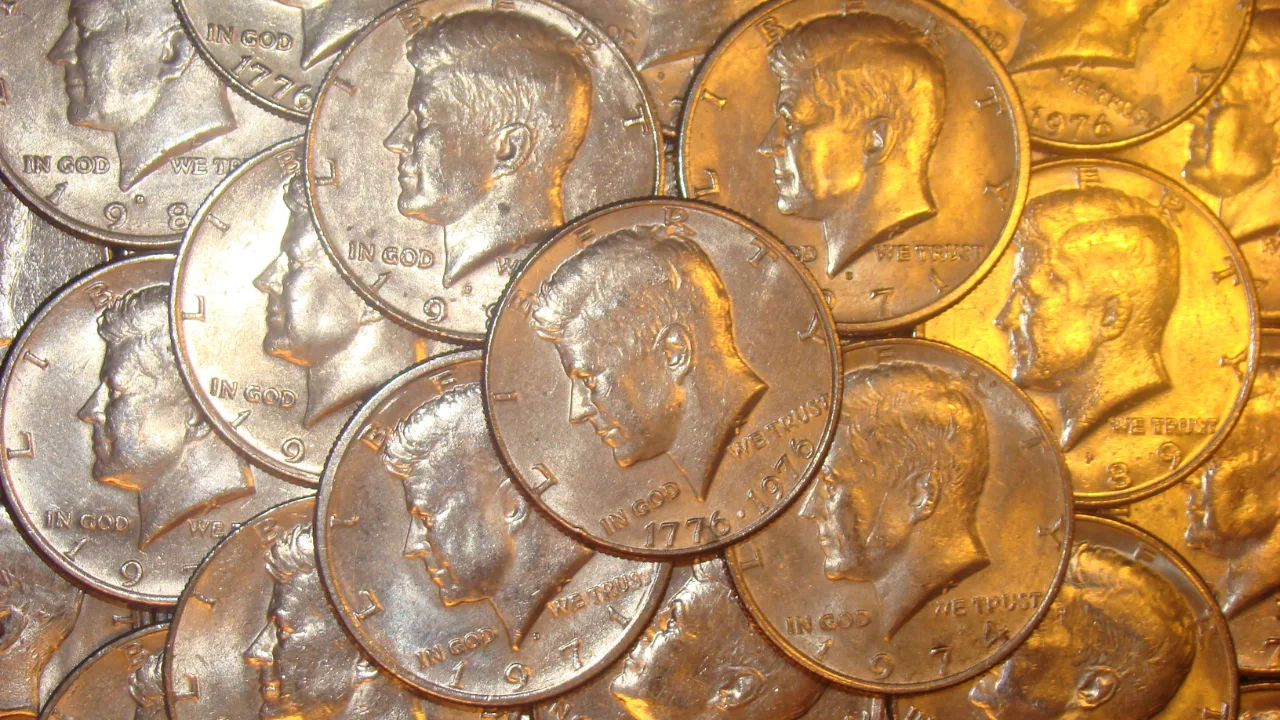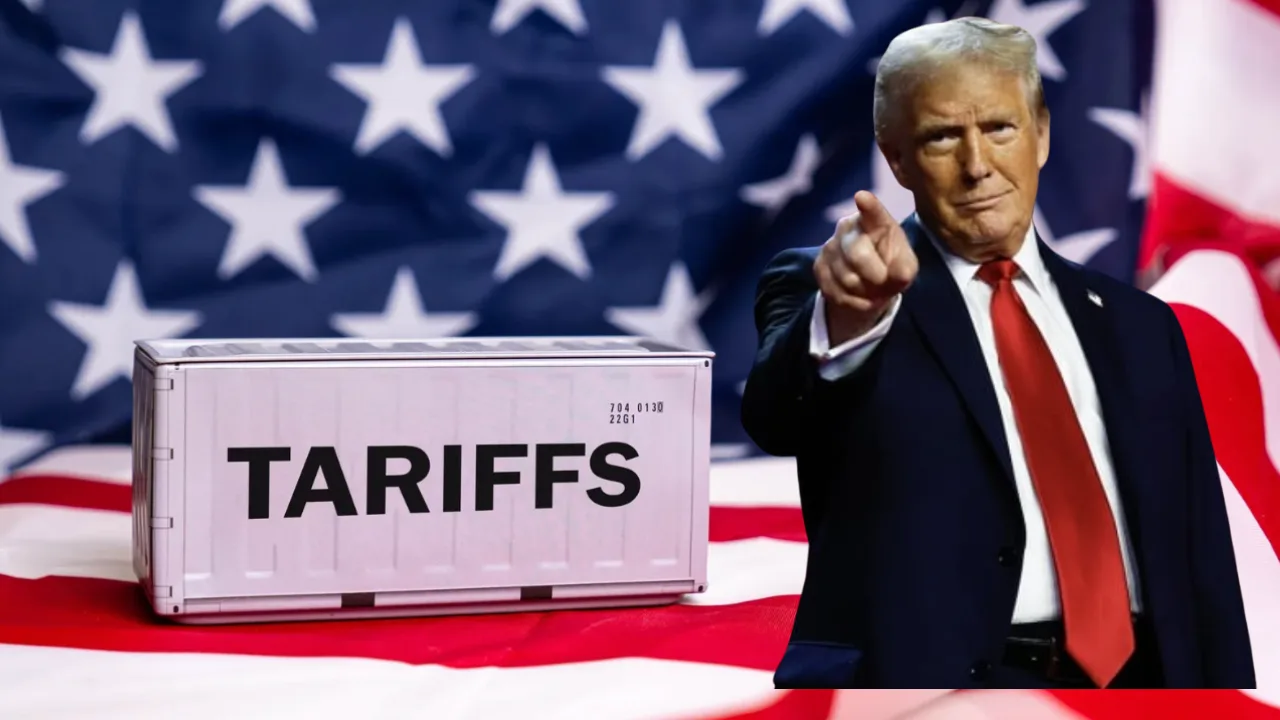Trump’s Plan for Heavy Drug Tariffs Sparks Fears of Higher Prices and Shortages.President Donald Trump’s proposal to impose tariffs of up to 200% on imported pharmaceuticals could reshape the drug industry, but experts warn it risks driving up prescription costs, straining supply chains, and causing shortages in the U.S.
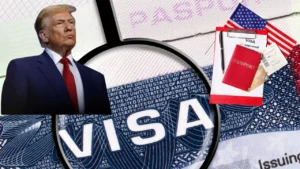
Trump’s Tariff Push on Pharmaceuticals
President Donald Trump has announced plans to impose steep import taxes on pharmaceuticals—an industry that has long benefited from duty-free entry into the United States. Under a recently detailed U.S.–European trade deal, some drugs from Europe will already face a 15% tariff. Trump has gone further, threatening duties of up to 200% on medicines manufactured elsewhere.
The move marks an extension of Trump’s broader trade war strategy, which has already targeted steel, autos, and aluminum. He argues that tariffs will strengthen U.S. production and reduce reliance on foreign countries for essential medicines.

Potential Impact on Consumers
Economists and healthcare experts caution that the tariffs could backfire, hitting American consumers hardest. Analysts predict drug prices could rise by 10–14% once stockpiles are depleted, with low-income families and the elderly facing the steepest burden.
Diederik Stadig, a healthcare economist with ING, noted that “a tariff would hurt consumers most of all, as they would feel the inflationary effect directly at the pharmacy counter and indirectly through higher insurance premiums.”
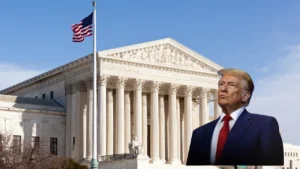
Stockpiling and Timeline
The administration has said tariffs will not take effect immediately. Instead, they may be delayed for 12–18 months, allowing drugmakers to stockpile medicine or shift some production to the U.S. Analysts suggest the real impact may not be felt until 2027 or 2028.
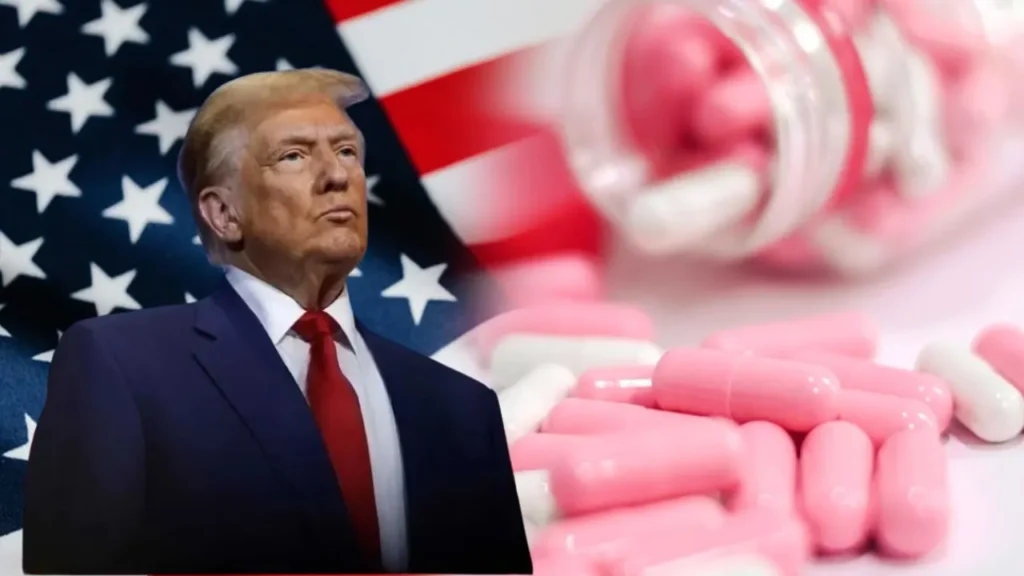
Supply Chain Vulnerabilities
The U.S. pharmaceutical industry has become increasingly dependent on foreign manufacturing. According to trade data:
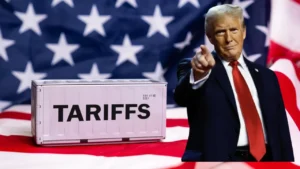
- 97% of antibiotics rely on at least one foreign-made ingredient.
- 92% of antivirals use imported components.
- 83% of generic drugs depend on overseas supplies.
This reliance leaves the U.S. vulnerable to disruptions. During the COVID-19 pandemic, many countries restricted exports of vital medical supplies, highlighting the risks of global dependence.
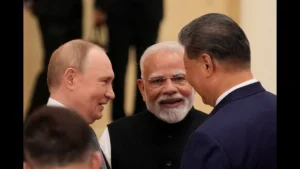
Industry Investments and Concerns
Major pharmaceutical companies have already begun investing heavily in U.S. production. Roche plans to spend $50 billion expanding operations, while Johnson & Johnson has pledged $55 billion over four years, with an aim to fully supply the U.S. market domestically.
However, experts warn that building new plants is costly and time-consuming, often taking years. Moreover, tariffs could still apply if imported ingredients are used in the final product.
Risk to Generic Medicines
Generic drugmakers—responsible for 92% of U.S. prescriptions—operate on razor-thin margins. Analysts fear many may exit the American market rather than absorb the added costs, raising the risk of critical shortages. A recent shutdown at an Indian factory led to a chemotherapy drug shortage, disrupting cancer treatment—a scenario experts warn could repeat on a larger scale.
Balancing Security and Affordability
Trump has justified the tariffs under Section 232 of the Trade Expansion Act of 1962, which allows such measures on national security grounds. While some policy experts argue tariffs could protect U.S. supplies, others say broader government support and systemic reforms would be required to rebuild domestic pharmaceutical production.
“In an ideal world, we would be making everything important only in the U.S.,” said Brookings Institution health policy analyst Marta Wosińska. “But it costs a lot of money … If we want to reverse this, we would really have to redesign our system. How much are we willing to spend?”
| Home Page | https://aiis.org/ |
Trump’s plan to heavily tax imported drugs underscores his push for economic nationalism and pharmaceutical independence. Yet the policy raises urgent questions: Will it secure supply chains, or will it push drug costs higher and drive out essential generics? As the debate unfolds, patients, drugmakers, and insurers are bracing for impact.
